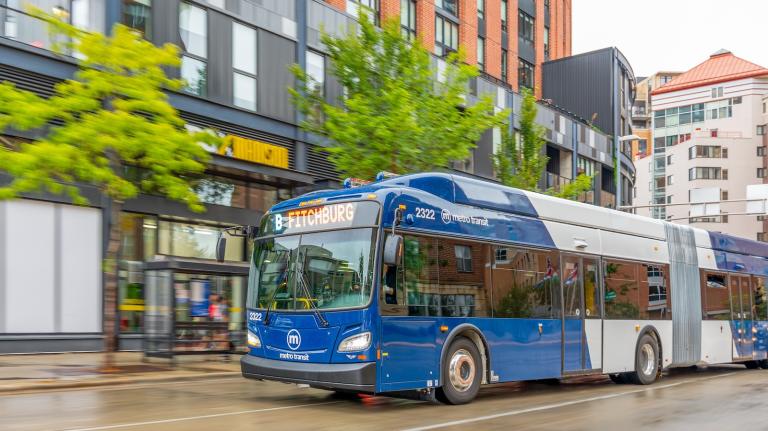Today’s Progress Report from CAP has a great rundown on the clean coal industry and the presidential debates. I’ve put the whole thing under the fold. Read it and weep:
Viewers tuning into Wednesday’s CNN/YouTube Republican debate probably saw commercials for "clean coal." They may have also seen an ad for the debate in that morning’s Washington Post, with a note at the bottom reading: "Sponsored by Clean Coal, America’s Power." These initiatives were funded by the group "Americans For Balanced Energy Choices" (ABEC), which receives its financing from coal companies and "their allies in the utility and railroad sectors." They are part of a multi-million dollar campaign aimed at generating public support "for the beleaguered coal-producing industry at a time when plans for new coal-fired power plants are being scrapped" nationwide. The Center for American Progress has released a Progressive Growth economic strategy based on building a low-carbon energy infrastructure, based on clean, renewable energy sources, efficiency, and greenhouse gas emission performance standards for coal that could "fuel the creation of good jobs and good prospects for workers at all skill levels."
DIRTY AGENDA: ABEC is a nonprofit coalition of the top coal companies in America, including Peabody Energy, the world’s largest private-sector coal company. Top energy executives recently quadrupled the budget for this coal front group, bringing ABEC’s annual allocation to more than $30 million. ABEC insists that the coal industry has a "clean" agenda. But one of its top priorities is to expand coal production through the promotion of government-funded "coal to liquid" technology to convert coal to vehicle fuels. This policy would produce twice as much global warming pollution as ordinary gasoline production, while consuming huge amounts of water. Since its establishment in 2000, ABEC has received support from the Center for Energy and Economic Development, whose website — even in late 2004 — said that the group rejects the "theory of catastrophic global climate change." Perhaps not surprisingly, part of ABEC’s agenda is to delay and weaken any limits on carbon dioxide pollution for as long as possible and convince Congress to give coal plants free "allowances" to emit greenhouse gases under any future "cap and trade" global warming plan.
DIRTY ADS: In order to sell its agenda to the American public, ABEC has launched a $7-million, three-month national advertising drive. National Journal notes, "The first set of ads underscore that coal is the energy source for about half the nation’s electricity output. A second round will tout so-called clean-coal technologies." Since January, ABEC executive director Joe Lucas has written at least eight "letters to the editor" in newspapers nationwide, pushing for more coal plants. ABEC has specifically targeted the 2008 election, recognizing that it needs an industry-friendly president to advance its agenda and block global warming reform. In 2000, for example, the coal industry donated more than $108,000 to George W. Bush’s campaign, compared to just $16,450 for Al Gore. Similarly, in 2004, Bush raked in more than $250,000 from the coal industry; Sen. John Kerry (D-MA) received approximately $6,000. On Nov. 9, ABEC put out a press release announcing that it was kicking off "its public campaign urging Iowa caucus-goers to challenge Presidential candidates to invest in clean coal technology and support coal as part of a sensible and affordable energy mix."
DIRTY POLITICAL TARGETING: ABEC also sponsored both the CNN Democratic debate in Nevada earlier this month, as well as the CNN/YouTube Republican debate in Florida earlier this week. These sponsorships were targeted to pressure not only the presidential candidates and CNN (not a single question on global warming was asked in either debate), but also anti-coal politicians in those states. Senate Majority Leader Harry Reid (D-NV), for example, has stood firmly against the construction of three proposed major coal-fired power plants in his home state. Florida Gov. Charlie Crist (R) is leading a "crusade against coal." Crist has unveiled a plan to reduce his state’s carbon dioxide emissions by replacing coal plants with solar thermal power plants. He has also canceled plans to build new coal plants that were pushed by his predecessor, Jeb Bush. "I am not a fan of coal," proclaimed Crist in October, applauding the news that Tampa Electric shelved plans to build a $2-billion power plant. The tide is steadily turning against coal. In the past 18 months, "about a dozen states including Texas, Florida and Oklahoma also have rejected plans for 22 new coal-fired power plants." This week, Google also announced that it plans to invest "hundreds of millions of dollars" to "develop electricity from renewable energy sources that will be cheaper than electricity produced from coal."
DIRTY LIES: The state of Kansas has been a particular focus in the coal industry’s campaign. On Oct. 18, the Kansas Department of Health and Environment denied air quality permits for two 700-megawatt coal-burning power generators near Holcomb, KS, "citing health and environmental concerns associated with carbon dioxide emissions." The decision was "the first time a coal plant air permit application" had "ever been denied on the basis of CO2 emissions." Less than a month later, newspapers across Kansas ran an ad by Kansans for Affordable Energy attacking the decision. It featured the smiling faces of Russian President Vladimir Putin, Venezuelan President Hugo Chavez, and Iranian President Mahmoud Ahmadinejad, asking "why are these men smiling?" (See the ad here.) The answer, according to the ad, was Gov. Kathleen Sebelius (D): "Because the recent decision by the Sebelius Administration means Kansas will import more natural gas from countries like Russia, Venezuela and Iran." Kansans for Affordable Energy is partially funded by not only by Peabody, but also Sunflower Electric Power Corp, the company whose permits were rejected by Sebelius’s administration. Additionally, not only does Kansas "currently export natural gas to other states," but the United States doesn’t even "import natural gas from Russia, Venezuela or Iran."


